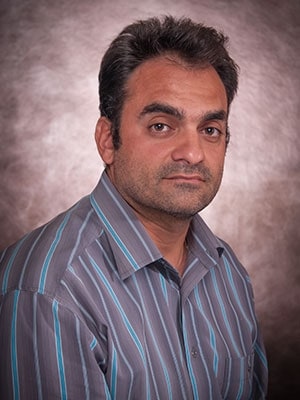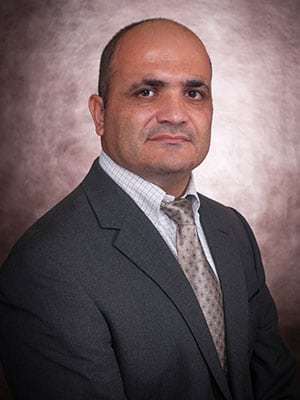Electrical Engineering (BSc, 4 Years)
| Duration | 4 years |
| Qualification Awarded | Electrical Engineering (BSc,4 years) |
| Level of Qualification | Bachelor Degree (1st Cycle) |
| Language of Instruction | English |
| Mode of Study | Full-time or Part-time |
| Minimum ECTS Credits | 240 |
Request Information
Profile of the Programme
The curriculum of the program includes both lectures covering theoretical aspects and laboratory sessions with emphasis given on the design and development of systems and modules. These courses are supported by advanced equipment and state-of-the-art hardware and software facilities for experimentation. They aim at preparing undergraduate students for a professional career in the industry or for post-graduate studies in Electrical Engineering or a related field. Great emphasis is given to the process of analysis and design throughout all years of study, and, therefore, projects are included in all of the major theoretical and laboratory courses. This provides the theoretical foundation and the practical skills for our students to successfully complete a demanding final year (capstone design) project at the end of their undergraduate journey.
The program equips students with the ability to identify, formulate and solve problems in the area of Electrical Engineering using techniques, skills, creative thinking and modern engineering tools, necessary for engineering practice. The program offers fundamental courses on mathematics, physics and computer technology, as well as specialized knowledge on areas of electronic circuits, communications, signal processing, electromagnetics, machines, power engineering, microprocessors, VLSI, embedded systems, and many more. Students are free to select elective courses from different thematic areas according to their preferences. Three thematic areas are available:
- Communications and Signal Processing
- Microwaves, Antennas and Optics
- Power and Automation Systems
The program is fully accredited by the Ministry of Education. It has also been approved by the Cyprus Scientific and Technical Chamber (ETEK) and our graduates are in a position to register as licensed Engineers with ETEK. The program conforms to the undisputable academic guidelines set by international accreditation bodies such as the Accreditation Board for Engineering and Technology (ABET) in the United States. It includes a considerable number of major and elective courses of theoretical and applied nature which add to program diversity and contribute to a foundation of a broad range of skills for career positions in academia and industry.
Also, like all programs of study the University of Nicosia, it is certified by the Cyprus Agency of Quality Assurance and Accreditation in Higher Education (CYQAA).
The University of Nicosia is recognized by the Hellenic National Academic Recognition and Information Center (D.O.A.T.A.P.) as equivalent to Greek H.E.I., while the degrees of its graduates have been recognized by D.O.A.T.A.P.
Occupational Profiles of Graduates with Examples
Graduates of Electrical Engineering will be able to use the acquired technical knowledge and analytical skills to effectively tackle engineering problems and provide viable solutions. Electrical Engineers may work in both the government and private sectors of the island. Potential employment opportunities include employment by:
- telecommunication companies to design and monitor large-scale telecommunication systems;
- electric companies in order to work in power generating plants, distribution networks, etc.;
- industrial production units utilizing electricity through diverse electric motors via industrial automation systems, heaters, coolers, etc.;
- companies dealing with any kind of home and outdoors automation systems;
- construction companies designing and installing diverse electrical supply facilities;
- software companies to design and develop algorithms that provide solutions to engineering type of application problems;
- companies specializing in industrial automation and control;
- companies that design electronic circuits that perform important functions for a wide range of applications; good examples are mobile phones, electronic gadgets, televisions, cameras, entertainment devices, etc.;
- companies that design and implement algorithms that improve network traffic, reduce time delays, eliminate noise and interference, etc.;
- companies that seek IT engineers to set up Local Area Networks (LANs) and monitor data traffic and quality of service;
- large, multi-national companies who seek consultants in the fields of telecommunications, semiconductors, electronics, and networks;
- army, navy, and defense companies;
- radar and monitoring system facilities;
- high schools as teachers of technology and electronics;
- university/research.
Access to Further Studies
After completion of the BSc program in Civil and Environmental Engineering, students may choose to broaden and deepen their academic qualifications and skills by pursuing post-graduate (Master and PhD) studies in the same or related field in Cyprus or overseas.
Academic Admission
The minimum admission requirement to an undergraduate programme of study is a recognized High School Leaving Certificate (HSLC) or equivalent internationally recognized qualification(s). Students with a lower HSLC grade than 7.5/10 or 15/20 or equivalent depending on the grading system of the country issuing the HSLC are provided with extra academic guidance and monitoring during the first year of their studies.
English Language Proficiency
The list below provides the minimum English Language Requirements (ELR) for enrollment to the programme of study. Students who do not possess any of the qualifications or stipulated grades listed below and hold IELTS with 4.5 and above, are required to take UNIC’s NEPTON English Placement Test (with no charge) and will receive English Language support classes.
- TOEFL – 525 and above
- Computer-based TOEFL – 193 and above
- Internet-based TOEFL – 80 and above
- IELTS – 6 and above
- Cambridge Exams [First Certificate] – B and above
- Cambridge Exams [Proficiency Certificate] – C and above
- GCSE English Language “O” Level – C and above
- Michigan Examination of Proficiency in English (CaMLA) – Pass
- Pearson PTE General – Level 3 and above
- KPG (The Greek Foreign Language Examinations for the State Certificate of Language Proficiency) – Level B2 and above
- Anglia – Level B2 and above
- IEB Advances Programme English – Pass
- Examination for the Certificate of Proficiency in English (ECPE) Michigan Language Assessment by: Cambridge Assessment English & University of Michigan – 650 average score for ALL skills and above
Course assessment usually comprises of a comprehensive final exam and continuous assessment. Continuous assessment can include, amongst others, class participation, homework assignments, laboratory reports, tests, mid-term exam, and semester project.
Letter grades are calculated based on the weight of the final exam and the continuous assessment and the actual numerical marks obtained in these two assessment components. Based on the course grades the student’s semester grade point average (GPA) and cumulative point average (CPA) are calculated.
The student must complete 240 ECTS and all program requirements.
A minimum cumulative grade point average (CPA) of 2.0 is required. Thus, although a ‘D-’ is a PASS grade, in order to achieve a CPA of 2.0 an average grade of ‘C’ is required.
Upon successful completion of this program, the students should:
- Have a fundamental understanding of a broad spectrum of topics in Electrical Engineering;
- Have advanced knowledge and in-depth understanding of at least one of the thematic areas of Electrical Engineering;
- Have a firm grasp of the basic knowledge of mathematics, physics, and possibly chemistry as a foundation for further post-graduate studies;
- Be able to communicate technical ideas effectively through both oral presentations and written reports;
- Have developed independent thinking and problem-solving skills to tackle real-world Electrical Engineering problems;
- Have extensive hands-on laboratory experience in designing hardware and software solutions to challenging real-world problems in Electrical Engineering;
- Have acquired an interdisciplinary fundamental knowledge for a more fulfilling and rewarding career;
- Have adequate software programming skills that are needed in the process of analysis and design of Electrical Engineering problem solutions;
- Be well-rounded individuals that are knowledgeable of fields outside of science and engineering including business, and liberal arts;
- Be well prepared for either an entry-level job in Electrical Engineering or further studies toward an advanced post-graduate Masters and/or Doctorate degree.
| Course ID | Course Title | ECTS Credits |
|---|---|---|
| COMP-111 | Programming Principles I | 6 |
| ECE-100 | Electric Circuits I | 6 |
| ECE-101 | Electric Circuits I Lab | 2 |
| ECE-102 | Electric Circuits II | 6 |
| ECE-103 | Electric Circuits II Lab | 2 |
| ECE-110 | Digital Systems | 6 |
| ECE-111 | Digital Systems Lab | 2 |
| ECE-210 | Electronics I | 6 |
| ECE-211 | Electronics I Lab | 2 |
| ECE-212 | Electronics II | 6 |
| ECE-213 | Electronics II Lab | 2 |
| ECE-220 | Microprocessors | 6 |
| ECE-221 | Microprocessors Lab | 2 |
| ECE-310 | Digital Integrated Circuits | 6 |
| ECE-331 | Signals and Systems I | 6 |
| ECE-332 | Probability and Random Signals | 6 |
| ECE-340 | Electromagnetics I | 6 |
| ECE-342 | Electromagnetics II | 6 |
| ECE-350 | Principles of Communications | 6 |
| ECE-360 | Electric Machines | 6 |
| ECE-364 | Control Systems | 6 |
| ECE-431 | Signals and Systems II | 6 |
| ECE-492 | Senior Year Project | 6 |
| ENGR-290 | Numerical Methods using MATLAB | 6 |
| Course ID | Course Title | ECTS Credits |
|---|---|---|
| ECE-324 | Data Communication and Computer Networks | 6 |
| ECE-352 | Electronic Communications | 6 |
| ECE-354 | Data Communication Technologies | 6 |
| ECE-426 | Optical Networks | 6 |
| ECE-432 | Speech Processing | 6 |
| ECE-433 | Digital Signal Processing | 6 |
| ECE-434 | Neural Networks and Fuzzy Systems | 6 |
| ECE-436 | Image Processing | 6 |
| ECE-450 | Information Theory and Coding | 6 |
| ECE-452 | Digital Communications | 6 |
| ECE-456 | Satellite Communication Systems | 6 |
| ECE-490T | Special Topics in Electrical and Computer Engineering | 6 |
| ECE-491T | Internship | 6 |
| Course ID | Course Title | ECTS Credits |
|---|---|---|
| ECE-362 | Power System Analysis | 6 |
| ECE-460 | Introduction to Robotics | 6 |
| ECE-462 | Power Electronics | 6 |
| ECE-464 | Digital Control Systems | 6 |
| ECE-466 | Electric Power Generation, Transmission and Distribution | 6 |
| ECE-467 | Renewable Energy Sources and Technologies | 6 |
| ECE-468 | Power System Protection | 6 |
| ECE-469 | Electrical Design, Planning and Regulations | 6 |
| ECE-490P | Special Topics in Electrical and Computer Engineering | 6 |
| ECE-491P | Internship | 6 |
| Course ID | Course Title | ECTS Credits |
|---|---|---|
| MATH-190 | Calculus I | 8 |
| MATH-191 | Calculus II | 8 |
| MATH-270 | Calculus III | 8 |
| MATH-280 | Linear Algebra I | 6 |
| MATH-330 | Ordinary Differential Equations | 6 |
| Course ID | Course Title | ECTS Credits |
|---|---|---|
| CHEM-106 | General Chemistry | 8 |
| ECE-305 | Solid-State Electronic Devices | 6 |
| PHYS-150 | General Physics I | 8 |
| PHYS-160 | General Physics II | 8 |
| PHYS-270 | General Physics III | 8 |
| Course ID | Course Title | ECTS Credits |
|---|---|---|
| ACCT-110 | Accounting I | 6 |
| BADM-234 | Organizational Behavior | 6 |
| ECON-261 | Principles of Microeconomics | 6 |
| ENGR-300 | Engineering Economy | 6 |
| ENTR-150 | Introduction to Entrepreneurship | 6 |
| MGT-281 | Introduction to Management | 6 |
| MGT-372 | Management of Innovation and Technology | 6 |
| MIS-465 | Business and Management of Games | 6 |
| MKTG-291 | Marketing | 6 |
Section: H Language Requirements
ECTS: Min.12 Max. 12
| Course ID | Course Title | ECTS Credits |
|---|---|---|
| BADM-332 | Technical Writing and Research | 6 |
| ENGL-101 | English Composition | 6 |
Section: I Liberal Arts Electives
ECTS: Min. 6 Max. 6
Semester 1
| Course ID | Course Title | ECTS Credits | Lecturer(s) |
| ECE-100 | Electric Circuits I | 6 | Mr Andreas Serghiou, Associate Lecturer |
| ECE-101 | Electric Circuits I Lab | 2 | Mr Andreas Serghiou, Associate Lecturer |
| ENGL-101 | English Composition | 6 | Dr Katherine Fincham, Lecturer |
| MATH-190 | Calculus I | 8 | Dr George Portides, Assistant Professor |
| PHYS-150 | General Physics I | 8 | Dr Marios Nestoros, Associate Professor |
Semester 2
| Course ID | Course Title | ECTS Credits | Lecturer(s) |
| ECE-102 | Electric Circuits II | 6 | Mr Andreas Serghiou, Associate Lecturer |
| ECE-103 | Electric Circuits II Lab | 2 | Mr Andreas Serghiou, Associate Lecturer |
| ECE-110 | Digital Systems | 6 | Dr Stelios Neophytou, Associate Professor |
| ECE-210 | Electronics I | 6 | Prof Anastasis Polycarpou, Professor |
| ECE-211 | Electronics I Lab | 2 | Prof Anastasis Polycarpou, Professor |
| MATH-191 | Calculus II | 8 | Prof Marios Christou, Professor |
Semester 3
| Course ID | Course Title | ECTS Credits | Lecturer(s) |
| COMP-111 | Programming Principles I | 6 | Dr Andreas Savva, Associate Professor |
| ECE-111 | Digital Systems Lab | 2 | Dr Stelios Neophytou, Associate Professor |
| ECE-212 | Electronics II | 6 | Dr Andreas Michaelides, Assistant Professor |
| ECE-213 | Electronics II Lab | 2 | Dr Andreas Michaelides, Assistant Professor |
| MATH-280 | Linear Algebra I | 6 | Dr George Chailos, Associate Professor |
| PHYS-160 | General Physics II | 8 | Dr Marios Nestoros, Associate Professor |
Semester 4
| Course ID | Course Title | ECTS Credits | Lecturer(s) |
| ECE-220 | Microprocessors | 6 | Mr Andreas Serghiou, Associate Lecturer |
| ECE-221 | Microprocessors Lab | 2 | Mr Andreas Serghiou, Associate Lecturer |
| MATH-270 | Calculus III | 8 | Prof Nectarios Papanicolaou, Professor |
| MATH-330 | Ordinary Differential Equations | 6 | Prof Nectarios Papanicolaou, Professor |
| PHYS-270 | General Physics III | 8 | Dr Marios Nestoros, Associate Professor |
Semester 5
| Course ID | Course Title | ECTS Credits | Lecturer(s) |
| ENGR-290 | Numerical Methods Using MATLAB | 6 | Dr Ioannis Kyriakides, Associate Professor |
| ECE-310 | Digital Integrated Circuits | 6 | Dr Stelios Neophytou, Associate Professor |
| ECE-331 | Signals and Systems I | 6 | Dr Antonis Hadjiantonis, Associate Professor |
| ECE-340 | Electromagnetics I | 6 | Prof Anastasis Polycarpou, Professor |
| ECE-360 | Electric Machines | 6 | Dr Andreas Michaelides, Assistant Professor |
Semester 6
| Course ID | Course Title | ECTS Credits | Lecturer(s) |
| ECE-324 | Data Communication and Computer Networks | 6 | Prof Constandinos Mavromoustakis, Professor |
| ECE-332 | Probability and Random Signals | 6 | Dr George Gregoriou, Associate Professor |
| ECE-342 | Electromagnetics II | 6 | Prof Anastasis Polycarpou, Professor |
| ECE-350 | Principles of Communications | 6 | Dr Antonis Hadjiantonis, Associate Professor |
| ECE-364 | Control Systems | 6 | Dr Ioannis Kyriakides, Associate Professor |
Semester 7
| Course ID | Course Title | ECTS Credits | Lecturer(s) |
| BADM-332 | Technical Writing and Research | 6 | Dr Katarzyna Alexander, Associate Lecturer |
| ECE-354 | Data Communication Technologies | 6 | Dr Antonis Hadjiantonis, Associate Professor |
| ECE-431 | Signals and Systems II | 6 | Dr Ioannis Kyriakides, Associate Professor |
| ECE-444 | Antennas for Wireless Communications | 6 | Prof Anastasis Polycarpou, Professor |
| ENGR-300 | Engineering Economy | 6 | Dr Antonis Hadjiantonis, Associate Professor |
Semester 8
| Course ID | Course Title | ECTS Credits | Lecturer(s) |
| ACCT-110 | Accounting I | 6 | Prof Petros Lois, Professor |
| COMM-200 | Liberal Arts Elective | 6 | Dr Androulla Papakyriacou, Assistant Professor |
| ECE-433 | Digital Signal Processing | 6 | Dr Ioannis Kyriakides, Associate Professor |
| ECE-464 | Digital Control Systems | 6 | Dr George Gregoriou, Associate Professor |
| ECE-492 | Senior Year Project | 6 | Coordinator: Dr Stelios Neophytou, Associate Professor Advisor: Electrical/Computer Engineering Faculty |
Note: The above semester breakdown is an indicative one. A few of the courses are electives and can be substituted by others. Students may contact their academic advisor and consult their academic pathway found on this website under “Schools & Programmes”.














